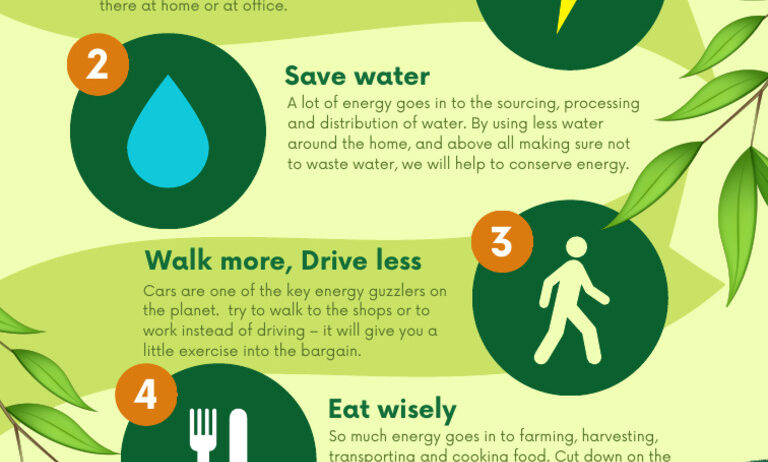The human body operates much like a finely tuned machine, requiring careful calibration to maintain optimal performance and vitality. Understanding how to conserve energy within our bodily systems is essential for maximizing our physical and mental faculties. This guide delves into various strategies encompassing diet, exercise, sleep, and mindfulness, each contributing significantly to energy conservation and overall wellness.
First and foremost, nutrition plays an instrumental role in conserving energy. A diet rich in whole foods—vegetables, fruits, whole grains, and lean proteins—provides the body with essential nutrients necessary for efficient metabolic function. Micronutrients, such as vitamins and minerals, act as cofactors in numerous enzymatic processes crucial for energy production. Conversely, food high in refined sugars and trans fats can lead to energy crashes. Opting for a balanced diet helps to maintain stable blood sugar levels, which is fundamental for sustained energy.
Hydration is another critical aspect often overlooked. Water constitutes a significant portion of our body, participating in metabolic reactions and thermoregulation. Dehydration can lead to fatigue, making it imperative to consume sufficient fluids throughout the day. Herbal teas and infused waters can also enrich hydration while providing antioxidants that further bolster energy conservation. Aiming for at least eight 8-ounce glasses of water daily is a general guideline to prevent the lethargy associated with dehydration.
Exercise, contrary to common belief, is a paradoxical energy booster and conserver. While physical activities expend energy, they also enhance overall stamina and efficiency of the cardiovascular and muscular systems. Engaging in regular aerobic and strength training exercises promotes the release of endorphins and other biochemicals that elevate mood and decrease perceived exertion. It is vital to integrate varied routines to avoid monotony, which can lead to burnout. Short, high-intensity workouts can also be effective; they optimize energy use without overwhelming the body’s systems.
In tandem with physical activity, cultivating a suitable sleep regimen cannot be overstated. Sleep is the body’s natural restorative state, allowing for repair, growth, and detoxification. The majority of adults require between 7 to 9 hours of uninterrupted sleep for optimal functioning. Poor sleep hygiene—excessive screen time, irregular sleep schedules, and stimulants like caffeine—can significantly impede energy conservation efforts. Establishing a calming pre-sleep routine and maintaining a consistent sleep-wake schedule enhances the quality of slumber and, consequently, daytime energy levels.
Moreover, stress management techniques play an essential role in preserving both mental and physical energy. Chronic stress activates the body’s fight-or-flight response, which can lead to perpetual fatigue and burnout. Mindfulness practices, such as meditation, deep breathing exercises, or yoga, can effectively mitigate stress impacts. By enhancing mental clarity and reducing anxiety, such practices allow the individual to channel energy more efficiently toward productive tasks rather than unproductive rumination.
Social connections also contribute to energy levels significantly. Engaging with friends, family, or community members fosters emotional support, which is a vital component in combatting fatigue and isolation. Positive social interactions can lead to the release of oxytocin, sometimes referred to as the “bonding hormone,” which enhances feelings of well-being and decreases physiological stress responses. Therefore, nurturing relationships provides a dual benefit—enhancing emotional health and conserving energy levels.
Additionally, consider the environment in which you spend your time. The ambiance of a space can affect mood and energy. Natural light can improve alertness and mood, while clutter can lead to distractions and feelings of anxiety. Surrounding yourself with minimalist decor, maintaining order, and incorporating elements from nature—like plants—can create an environment conducive to positive energy flow. Furthermore, spending time outdoors allows the body to receive sunlight, which is essential for Vitamin D synthesis, further aiding in energy conservation.
Furthermore, pacing oneself throughout the day enhances energy conservation. The Pomodoro Technique is a useful method that promotes short bursts of focused work followed by breaks. This technique harnesses the brain’s natural rhythms and helps maintain concentration without leading to fatigue. An intentional approach to workload and energy expenditure can yield higher productivity with lower perceived effort.
Diet, hydration, exercise, sleep, stress management, social connections, environmental considerations, and pacing are all intertwined components crucial for conserving energy. Each element reinforces the others; for instance, improved nutrition can enhance sleep quality, while regular exercise can contribute to better mood management. By harmonizing these aspects, individuals can substantially increase their vitality and overall quality of life.
Ultimately, to achieve maximum vitality, it is essential to weave these principles into daily practice. Making lifestyle adjustments, however, requires diligence and commitment. Setting small, achievable goals can help steadily integrate these strategies into one’s routine. With time, the benefits of conserving body energy will manifest, leading to a vivacious and fulfilled existence.








